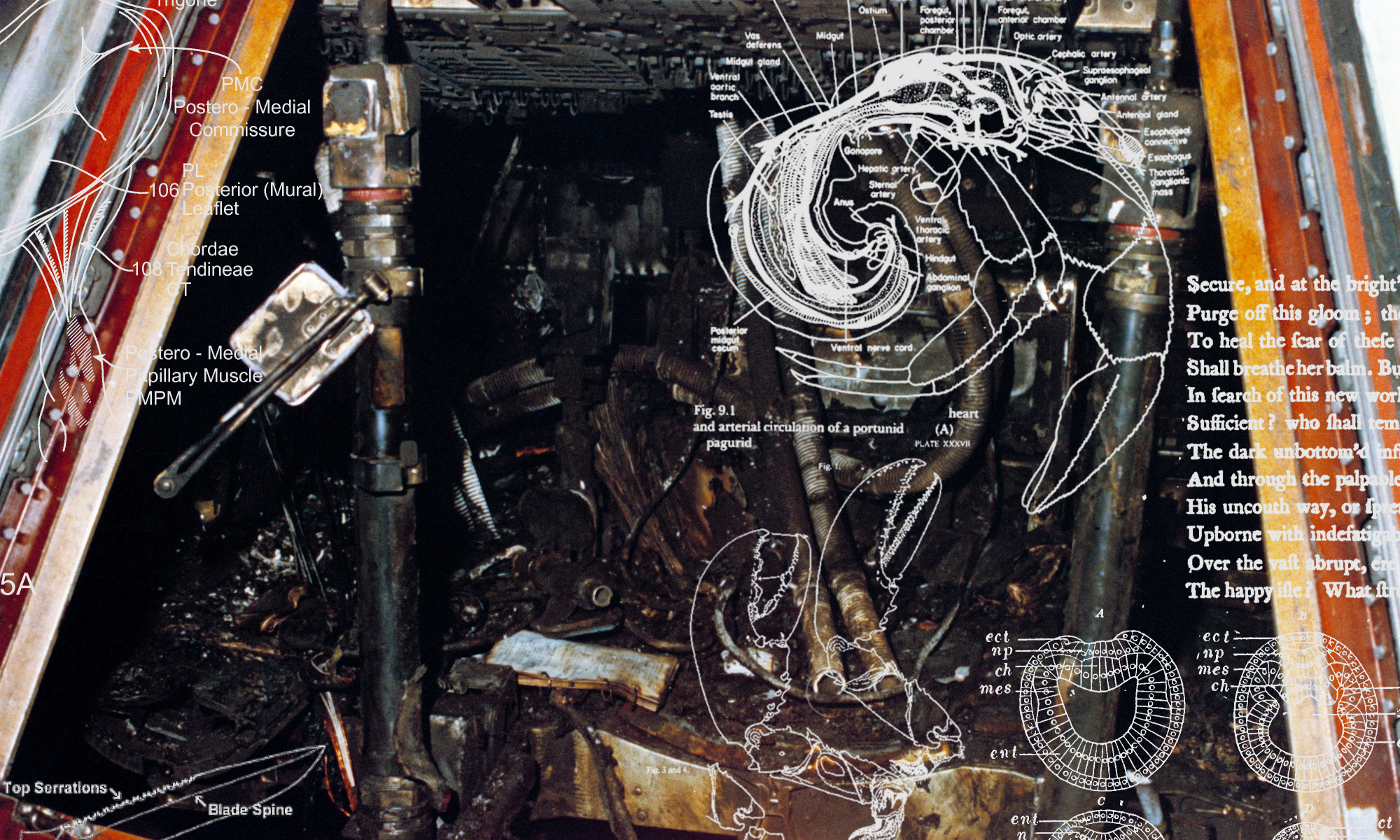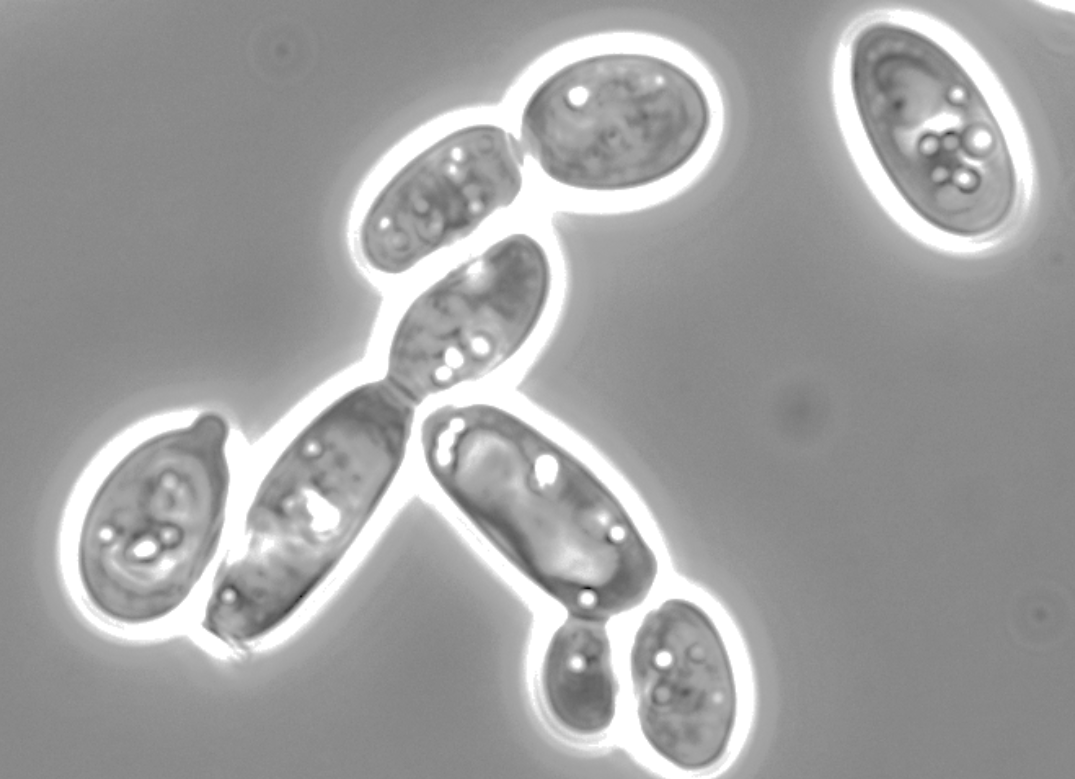by Uriel Alexis
This is an attempt, more or less, at a defense of neocameralism and patchwork against the blows struck by Vince Garton here.
Skins
Anything is only itself because it’s functionally different from everything else. This computer I’m typing at is only itself because it’s neither at the next desk, nor does it function in the manner of an apple, amongst many other things.
The degree of differentiation is not absolute. There is a gradient of order from the inside core to the outside, where others lie. There are, nonetheless, boundaries. Permeable boundaries, but boundaries nonetheless. Discontinuities where the gradient takes a leap.
A system is a difference between system and environment. The more it becomes itself, the more it deepens this difference, this discontinuity. There, at this boundary, lie the operations such a system can perform — the ways it lets the outside in. It is at this threshold that its particular features are engraved.
Any inner endeavor is necessarily tied to an outside behavior. Systems only survive through structural coupling, or mutual variation. To be, then, is already to trade away things that are inside.
At any given moment, this difference may become paranoid. It then folds upon itself, and histericizes its particularities, which is to say, it develops an identity. Entrances are rigidified, reduced and finally narrowed down to one single path of digestion, heavily securitized. Membranes become skins. An organism is born out of the system.
Organisms are parasites, though. Paranoiacs can’t innovate, can’t produce. They just reproduce themselves. So, when skins arise, it’s only because the systematics have been pushed one level up. It’s only because there are populations that individual organisms can evolve.
The Game
Conflict is primary, demonstrably so, as there’s no agreement even on that. Thus strategy imposes itself at every level: moving to stay the same, that’s the immediate antinomy. When organisms come into being, systems become a game. The only game in town: variation-selection.
The game the whole system plays at the highest level is fractally repeated within itself. It is on the order provided by the game that organisms parasite, and as they internalize this order, they fragment themselves, dissolving back into the process.
When organisms play the game of variation-selection, there are only so many strategies they can pursue. By far the most important move is localization or individuation: the ability to internalize, in ever smaller units, costs and benefits. Organisms that don’t do that have a way more complicated path ahead, and get used by those that do — like pathogens use humans. Organisms collide and conflict in order to engrave in themselves the only knowledge they can pursue: survival. And thus the system thrives.
But it may be that the system itself becomes paranoid. This destroys the game entirely, and organises organisms into a new, supra-organism. The larger the scale of this move, the more risky it is (variation-selection is always played at the highest levels, and supra-organisms have serious disadvantages). An organism — without an internal system — is always already a degenerating order.
On the contrary, an organism may itself systematize, relax and let go. This becoming-membrane of skins lets plenty in and individualizes consequences internally. The game is now played at smaller levels, and ‘organ individualism’ becomes imaginable. From here all the way down to 0-degree organization (“intelligent dust cloud” or “grey goo”), it’s just acceleration.
Leviathan’s Termites
Vince Garton argues:
Yet patchwork remains, despite itself, peculiarly ambivalent. It is obsessed with the state: creating new states, cutting up states, states on top of states. … At an elementary level, however, it seems that competition between states must favour states themselves, and for this we have many great proofs throughout history — the emergence of the truly protofascist Qin Empire from the fissiparous warring Chinese states; the rise of Alexander’s empire from the Greek poleis; the birth of raison d’état in Renaissance Italian city-states.
Is it true that patchwork must favor states? Surely, systems can become paranoid and organize. The examples he presents of China and the Greek poleis would attest to this. But since hegemony is atrophy, every single one of these movements decayed after their formation (Alexander’s example immediately so), until they collapsed under their own weight back into a system of moving parts.
Garton is not satisfied:
The question, then, is this: ‘How can the sovereign power be prevented — or at least dissuaded—from devouring society?’ […] In the end, Hobbes shows us that it cannot be maintained. […] But to be sustained even in the most radical state of exception, in conditions of overwhelming catastrophe, the commonwealth’s domination must expand irrepressibly from the radical root of human thought into every circle of existence. It must ‘devour society’. […] Once threatened, Leviathan must warp everything around itself in order to maintain its existence — all thought, all ideology, all behaviour. Politics must get a grip — whatever the cost.
Which brings us to the topic of sovereignty, or self-rule. I want to advance here that sovereignty is indistinguishable from the ability to trade itself away. Without a matrix of commerce — a system — in which bits and pieces flow, all notions of self-rule, autonomy or ‘control’ are rendered moot. That which can’t break itself apart dies off. I dug deeply into this elsewhere: power only works to the extent that it is internally checked. An all encompassing monster is rotting indeed.
Land sets the primary steps on this road:
More promising, by far — for the purposes of tractable argument — is a strictly formal or contractual usage of ‘control’ to designate the exclusive right to free disposal or commercial alienation. Defined this way, ownership is a legal category, co-original with the idea of contract, referring to those things which one has the right to trade (based on natural law). Property is essentially marketable. It cannot exist unless it can be alienated through negotiation. A prince who cannot trade away his territory does not ‘own’ it in any sense that matters.
(…)
Neocameralism necessarily commercializes sovereignty, and in doing so it accommodates power to natural law. Sovereign stock (‘primary property’) and ‘secondary property’ become commercially inter-changeable, dissolving the original distinction, whilst local sovereignty is rendered compliant with the wider commercial order, and thus becomes a form of constrained ‘secondary sovereignty’ relative to the primary or absolute sovereignty of the system itself. Final authority bleeds out into the catallactic ensemble, the agora, or commercium, where what can really happen is decided by natural law. It is this to which sovereign stockholders, if they are to be effective, and to prosper, must defer.
A recipe for consistent dissolution, which structurally avoids paranoiac re-capture.
Patchwork, insofar as it breaks its neocameral pieces apart in a systematic commercium of sovereignty, is a recipe for the “ambivalence” Garton himself recommends. Recursively implementing its own dynamics into the organisms that comprise it, Patchwork is a machine that kills Leviathans. Neocameral sovcorps are the bacterial termites that rot them away, implementing “the infectious patchwork within the state, a recursive dissolution that leaves not a network of states, but an endless flux in which the state itself disintegrates into the very war that sustains it”, of which Garton writes.
Whatever skin or membrane remains is for the game to decide. ![]()


